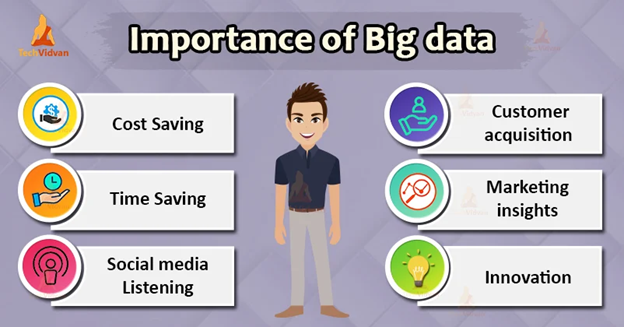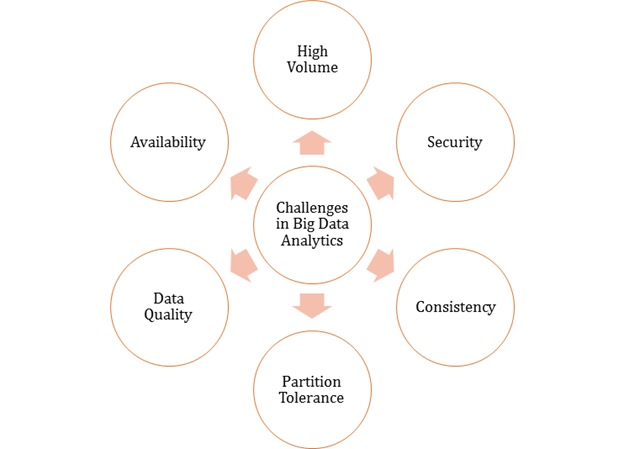Content
SHARE

Big data is a term that has been buzzing around the business world for some time now. But what exactly is it? And how can it be used to create new market opportunities? In this comprehensive guide, we delve into the world of big data, exploring its potential and how businesses can harness it to drive growth and innovation.
Understanding Big Data
Big data refers to the vast volumes of data that businesses generate every day. This data comes from a variety of sources, including social media, customer transactions, sensors, and more. The sheer volume, velocity, and variety of this data make it a challenge to manage and analyse using traditional methods.However, with the right tools and strategies, businesses can turn this data into valuable insights. These insights can help businesses understand their customers better, improve their products and services, and identify new market opportunities.
Source: Team, T.,(2021, June 16). Why Big Data – Benefits and Importance of Big data.
The Importance of Big Data
Big data is more than just a buzzword. It’s a powerful tool that can help businesses make informed decisions, drive innovation, and stay ahead of the competition. By analysing big data, businesses can gain a deeper understanding of their customers’ needs and preferences. This can help them tailor their products and services to meet these needs, resulting in increased customer satisfaction and loyalty. Moreover, big data can help businesses identify trends and patterns that can inform their strategic planning. This can help them anticipate market changes and seize new opportunities before their competitors do.
Using Big Data for Market Opportunities
So, how can businesses use big data to identify and seize new market opportunities? Here are some strategies to consider.
Customer Segmentation
One of the most effective ways to use big data is for customer segmentation. By analysing customer data, businesses can identify different customer segments based on their behaviours, preferences, and needs. This can help them tailor their marketing strategies to target these segments more effectively. For example, a business might identify a segment of customers who are interested in eco-friendly products. They could then develop and market a new line of eco-friendly products to cater to this segment, creating a new market opportunity.
Trend Analysis
Big data can also be used for trend analysis. By analysing data from various sources, businesses can identify emerging trends in the market. These trends can provide valuable insights into what customers want and need, helping businesses to develop new products and services that meet these needs. fashion retailer might use big data to identify emerging fashion trends. They could then use this information to design and produce clothing that aligns with these trends, creating a new market opportunity.
Source: Shukla, Parag & Atkotiya, Kishor. (2017). BIG DATA ANALYTICS: WHAT IT IS AND WHAT IT ISN’T, CHARACTERISTICS, CLASSIFICATION, CHALLENGES AND IMPORTANCE. International Journal of Computer Engineering & Technology (IJCET). 8. 60-66.
Challenges of Using Big Data
While big data offers many opportunities, it also presents some challenges. These include data privacy concerns, the need for advanced analytical skills, and the cost of implementing big data solutions.
Data Privacy
One of the biggest challenges of using big data is ensuring data privacy. Businesses must ensure that they comply with data protection regulations and respect their customers’ privacy. This requires robust data governance strategies and systems. Moreover, businesses must be transparent about how they collect, use, and store customer data. This can help build trust with customers and mitigate potential legal and reputational risks.
Skills and Resources
Analysing big data requires advanced analytical skills and resources. Businesses need to invest in the right tools and technologies to collect, manage, and analyse big data. They also need to invest in training or hiring data scientists and analysts who can make sense of the data. However, the investment can be well worth it. With the right skills and resources, businesses can unlock the full potential of big data and seize new market opportunities.
Conclusion
Big data is a powerful tool that can help businesses identify and seize new market opportunities. By analysing customer data, identifying trends, and tailoring their products and services, businesses can drive growth and innovation. However, using big data effectively requires a strategic approach, the right skills and resources, and a commitment to data privacy. With these in place, businesses can harness the power of big data and turn it into a competitive advantage.
Frequently Asked Questions About Big Data
What is Big Data in Business?
Big data refers to the large, diverse sets of information that grow at ever-increasing rates. It encompasses the volume of information, the velocity or speed at which it is created and collected, and the variety or scope of the data points being covered (known as the “three v’s” of big data).
What are Big Data Examples ?
Some examples are transaction processing systems, customer databases, documents, emails, medical records, internet clickstream logs, mobile apps and social networks.
What are the Disadvantages of Big Data?
- Privacy and Security Concerns
- Unreliable Data Quality.
- Complexity
- Cybersecurity Risks
- Legal and Regulatory Issues
- Hardware Needs
- Costs
What is Big Data in AI?
Big data is the fuel that powers the evolution of AI’s decision making. Big data can be explored and analysed for information and insights.
How Can Big Data Be Used?
With big data, you can analyse and assess production, customer feedback and returns, and other factors to reduce outages and anticipate future demands. Big data can also be used to improve decision-making in line with current market demand.














